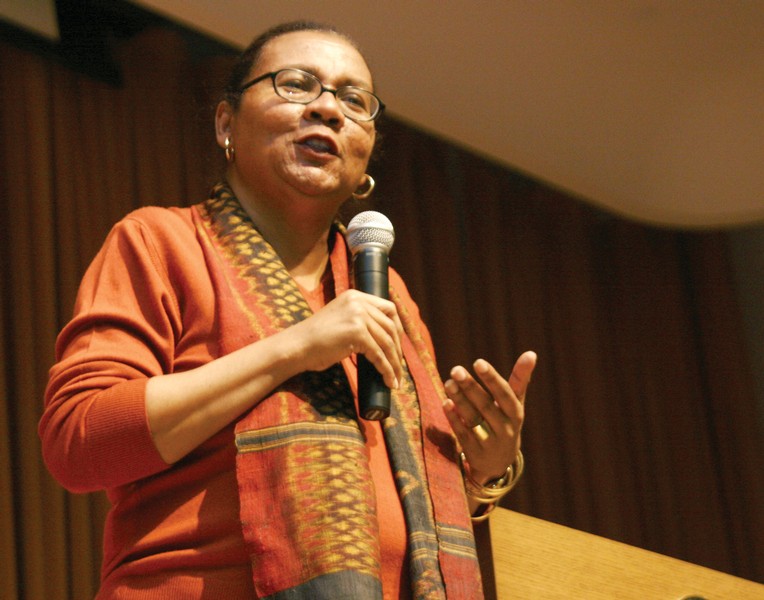ain’t i a woman by bell hooks
Written by Ashley Kelmore, Posted in Reviews
Four Stars
Best for: Those interested in exploring how feminism has failed at inclusivity, and how U.S. society has failed Black women.
In a nutshell: bell hooks provides a history of how racism, sexism and classism have impacted Black women in the U.S.
Line that sticks with me: “The process begins with the individual woman’s acceptance that American women, without exception, are socialized to be racist, classist, and sexist, in varying degrees, and that labeling ourselves feminists does not change the fact that we must consciously work to rid ourselves of the legacy of negative socialization.”
Why I chose it: I picked this for my office’s equity and social justice book club because I don’t think my feminist reading has included nearly enough of the Black woman’s perspective, and I wanted to be able to discuss this with others.
Review: I’ve somehow managed to never read any bell hooks even though I’m familiar with her importance to feminism. With this great book (which is frustratingly hard to track down in bookstores – I had to resort to ordering online) I feel like I got a more in-depth education on issues that I’ve been trying to learn more about this year.
Starting with slavery, Dr. hooks examines how racism, sexism and classism work together in impacting the experience of Black women in the U.S. For example, she explores how women who were slaves were forced to perform “masculine” tasks, but men who were slaves were not compelled to perform “feminine” tasks, and how society has spent a lot of time examining how slavery impacted the Black male psyche but has spent far less time examining how it impacted — and continues to impact — Black women.
She also looks at how the patriarchy — when combined with racism — has influenced the experience of Black women in society, eschewing the idea that Black women exist in a matriarchy simply because some households are run by women.
In the sections that might be challenging to read for white women who consider themselves feminists, Dr. hooks examines the ways in which white women have pushed black women out of discussions of sexism, seeking to maintain their status within the patriarchy as at least above Black people. She also spends time looking at how society seems to default ‘women’ to mean white women and ‘Black’ to mean Black men, leaving Black women out completely, and what the implications of that are.
I appreciated Dr. hooks’s examination of how so much of feminism (as practices by white feminists) seeks not to overturn the system, but to make gains with the patriarchal, capitalist system that exists in this country. This isn’t particularly imaginative or revolutionary, and can mean that instead of fighting for true freedom, we just end up fighting with each other for material gains. I also appreciate that despite all of this, she doesn’t argue that feminism is only for white women; she sees the real benefits of it, but only when we can really fight for the freedom that feminism should bring about. I’m looking forward to discussing it at work this week.
This is a dense read (at under 200 pages it still took longer than I expected) but definitely worth it.

